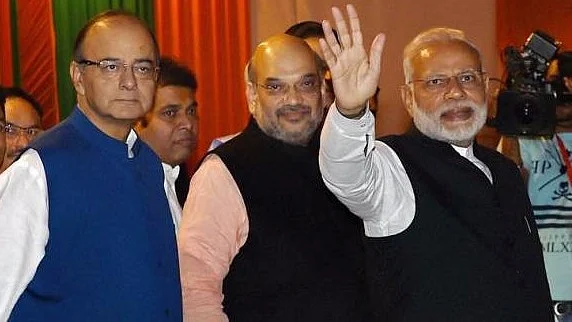Avoid knee-jerk reactions like farm loan waivers and focus on reforms in the upcoming Budget to reduce stress in the rural economy, as the government estimates farm growth to slow down in the ongoing financial year.
That’s the advice from an economist, and the head of the farm division at one of India’s largest consumer goods companies. They want the government to follow up on its initiatives.
Last year, the Centre increased import duties on wheat and pulses and introduced the model of Agricultural Produce Market Committee Act, 2017.
The markets regulator allowed ‘options trading’ in commodity derivative exchanges.
The Bharatiya Janata Party is in power at the Centre and most states.
That presents a perfect opportunity for reforms to effectively materialise due to reduced risk of difference in opinions.Abhijit Sen, former member of the Planning Commission, told BloombergQuint in an interview.
The Indian economy is expected to grow at 6.5 percent in the year ending March, its slowest pace since 2014, due to weaker farm and manufacturing growth, according to estimates put out by the Central Statistical Organisation.
Rural consumption had fallen after demonetisation in November 2016 and delayed rains in some parts of the country impacted the output last year.
Farmers got little relief amid price volatility as reforms failed to translate into action, said S Sivakumar, agriculture business division head at ITC Ltd. It remains to be seen what capital and incentives the Centre provides for states to put the reforms into action, he said.
The model APMC Act allows private wholesale markets, deregulates fruits and vegetables, and provides for a single levy and a united single trading licence.
All these steps are fundamental to the reform process, said Sivakumar.
Trading in agri options would protect farmers against a drop in crop prices, he said. Initiatives like the direct transfer of subsidies to bank accounts received a good on-the-ground response and need to be scaled up, he said.
While there is some lack of will at the moment, focus on such long-term reforms and technology should help boost the rural economy, Sen said. “Don’t do knee-jerk things. Don’t have farm loan waivers, but be prepared for monsoons to go wrong.”
Moreover, the minimum support prices have a relatively modest role to play and the government actions are more or less in line with what’s required, he said. Import tariffs are likely to have a higher bearing in the months to come, he said.
(The story was originally published on BloombergQuint and has been republished with permission.)
(At The Quint, we question everything. Play an active role in shaping our journalism by becoming a member today.)

